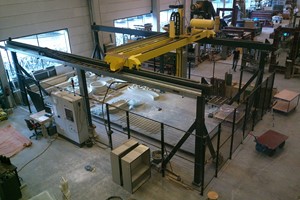With regional budgets under increasing pressure from oil price uncertainty and from the impact of the Covid-19 pandemic, the vast amount of time, money, and energy lost on wasteful construction practices represents a real threat to the region’s development visions.
Calls for reform in Middle East construction center on the need for greater collaboration on projects, and the earlier completion of finalized designs. The best opportunity to deliver these changes is through the greater digitalization of the construction process.
But as the regional construction industry comes to terms with the need to leverage technology to achieve greater efficiency and maintain the quality on project delivery, the market is diverging. While the UAE, Qatar, and Saudi Arabia have made significant strides in the digital transformation of construction, other countries in the region are proving slow to adopt digital solutions.
As part of its drive to position itself as a leading destination for business and tourism, the UAE pioneered the region’s use of digital technologies in construction such as building information modeling (BIM) on landmark projects including Dubai’s Museum of the Future, Dubai Metro, the Louvre Abu Dhabi and Expo 2020. As Expo 2020 draws near and the effects of a growing oversupply in high-end commercial and residential real estate are felt in the UAE, the focus of efforts to reform the regional construction industry is shifting to Saudi Arabia. Riyadh’s drive to develop Saudi Arabia’s infrastructure to deliver the kingdom’s Vision 2030 economic development plan is set to make it the center for regional construction for many years to come.


As well as housing and infrastructure developments, ambitious Gegaprojects such as the $500bn Neom future city, the $16bn Red Sea Project, and $6.5bn Qiddiya entertainment city will showcase the benefits of digital technology in construction to deliver leaner, faster, safer projects while maintaining construction quality.
With so many innovations that have the potential to transform the industry, from drones, robots, and 3D printing to BIM and digital twins, one challenge for companies is to know where to focus their digital investment. The additional financial pressures caused by Covid-19 mean that there is not always capital to invest in new technology. Partly due to its subscription-fee model, the most popular technology investment for construction professionals at the moment is cloud computing, which supports the use of web-based software as a service (SaaS).
SaaS is flexible, enabling data to be accessed from any device with an internet connection, but it is also convenient as the responsibility for server, database, and code maintenance is on the host rather than the user. With both the opportunity and the need to change, the coming years are set to see a rapid acceleration of digital transformation in the Middle East construction industry.
DIGITAL AWAKENING
The digitalization of construction in the Middle East














